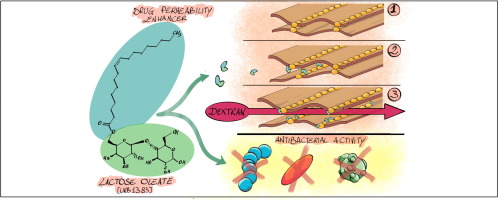Lactose oleate as new biocompatible surfactant for pharmaceutical applications

Abstract
Sugar fatty acid esters are an interesting class of non-ionic, biocompatible and biodegradable sugar-based surfactants, recently emerged as a valid alternative to the traditional commonly employed (e.g. polysorbates and polyethylene glycol derivatives). By varying the polar head (carbohydrate moiety) and the hydrophobic tail (fatty acid), surfactants with different physicochemical characteristics can be easily prepared. While many research papers have focused on sucrose derivatives, relatively few studies have been carried out on lactose-based surfactants. In this work, we present the synthesis and the physico-chemical characterization of lactose oleate. The new derivative was obtained by enzymatic mono-esterification of lactose with oleic acid. Thermal, surface, and aggregation properties of the surfactant were studied in detail and the cytotoxicity profile was investigated by MTS and LDH assays on intestinal Caco-2 monolayers. Transepithelial electrical resistance (TEER) measurements on Caco-2 cells showed a transient and reversible effect on the tight junctions opening, which correlates with the increased permeability of 4kDa fluorescein-labelled dextran (as model for macromolecular drugs) in a concentration dependent manner. Moreover, lactose oleate displayed a satisfactory antimicrobial activity over a range of Gram-positive and Gram-negative bacteria. Overall, the obtained results are promising for a further development of lactose oleate as an intestinal absorption enhancer and/or an alternative biodegradable preservative for pharmaceutical and food applications.

